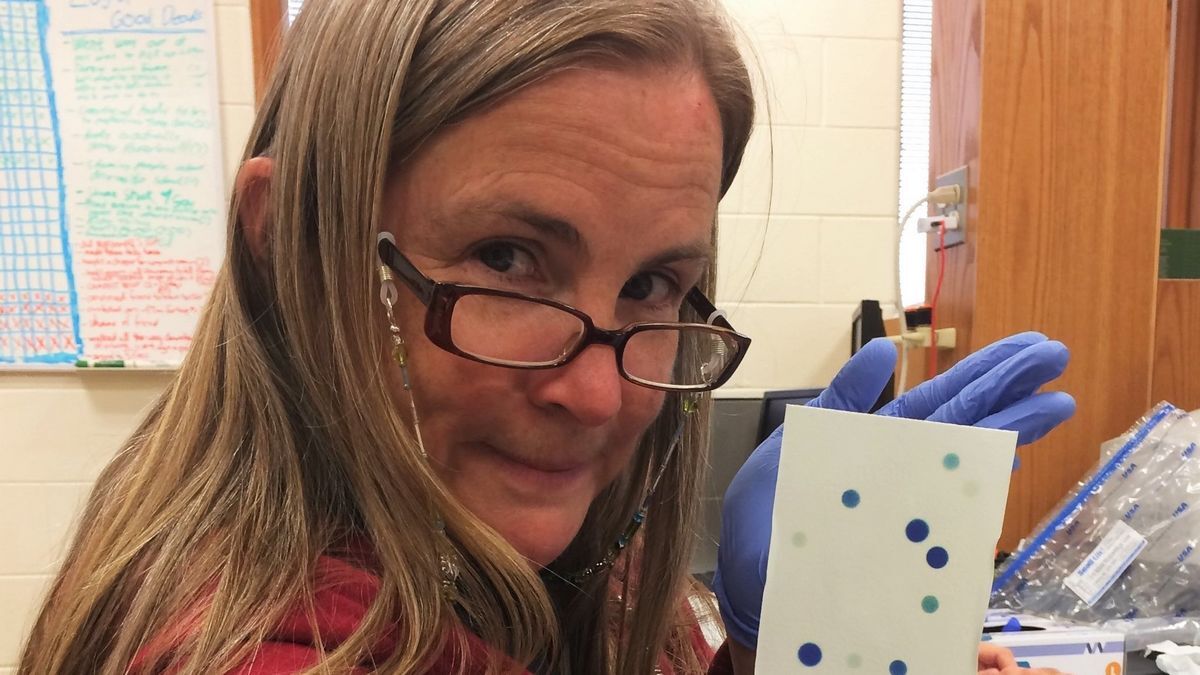Binney Girdler, professor of Biology at Kalamazoo College, was among the volunteers who collected white clover for the Global Urban Evolution Project. | Kalamazoo College
Binney Girdler, professor of Biology at Kalamazoo College, was among the volunteers who collected white clover for the Global Urban Evolution Project. | Kalamazoo College
A global research project that examined whether humans impact evolution via urbanization and climate change was aided by input from two Kalamazoo College biology faculty members.
Professor of Biology Binney Girdler, Associate Professor of Biology Santiago Salinas, and students Ben Rivera (a 2018 graduate) and Otto Kailing added study data to the Global Urban Evolution Project (GLUE), which was published on March 17 in the journal "Science," a recent news release on the college's website said.
"We've known about these differences for at least a decade now, but it's always been researched in small or very localized studies, comparing rural versus urban environments," Salinas said in the release. "The novelty of this work is that it's being replicated across lots of cities and gradients, most with similar results."
The research found that white clover plants located within a city are similar to those in other cities, as opposed to those found in rural locations, the release said.
"I think the local interest is that this shows we're not isolated," Girdler said in the release. "This shows that climate change is real and urbanization is real. This is a good study to show humans have had a huge impact, not just locally, but globally. There's nothing unique about the Kalamazoo case. We only understand the impact of it when it's embedded within this giant global study of 160 other cities."
Girdler added that it was exciting and "fun to be a part of" the global-effort research that helped her find hope during the pandemic.
The study showed that city clovers create less hydrogen cyanide for protection against herbivores, because herbivores are not as common in cities, the release said. But some cities showed no gradient, which is probably due to hydrogen cyanide's effect of enhancing clovers' water-stress tolerance. The latter is a sign that humans are changing the environment through rising temperatures, more pollution and less precipitation.



 Alerts Sign-up
Alerts Sign-up